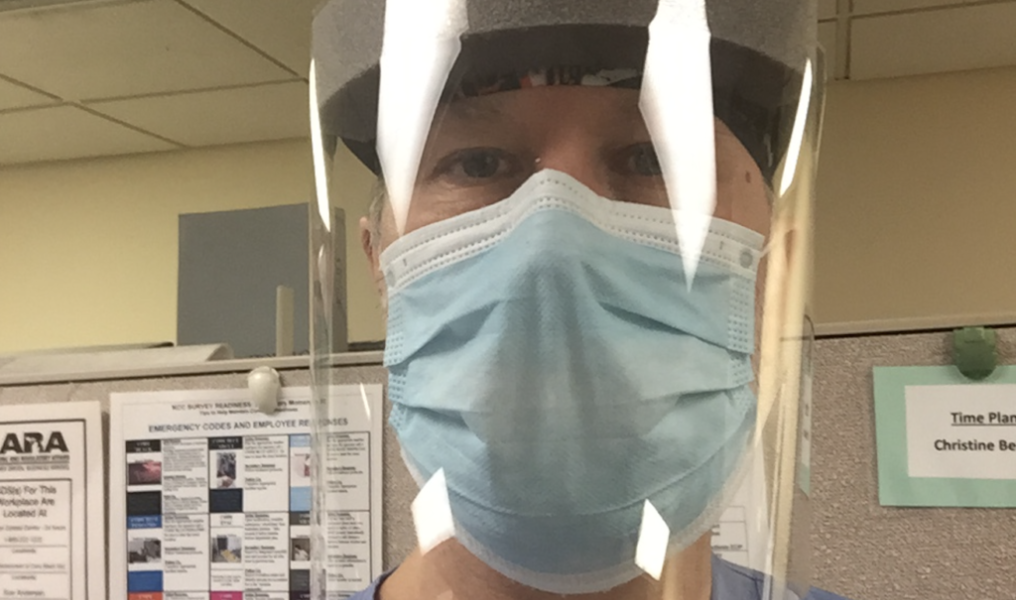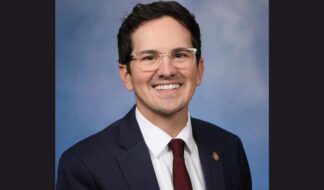In a seemingly positive trend overall, Michigan headed into Memorial Day 2020 with the fewest reported novel coronavirus deaths since March. And while Gov. Gretchen Whitmer has been called "cautiously optimistic" about those results, she's noted that "we're not out of the woods yet" and has extended the state's stay-at-home order until June 12 and its "state of emergency" until June 19. In total, there have been just over 5,000 deaths in the state and cases across Michigan number just over 54,000. It's clear that Southeast Michigan has been hardest-hit by COVID-19, with Wayne County reporting the most cases at 19,771 and 2,329 deaths, and surrounding counties like Oakland and Macomb coming in at second and third places with 8,215 and 6,499 cases respectively.
So while the statewide news is promising, it's important to remember that thousands of people remain sick in Michigan and that the respiratory virus can still be passed on. That's the advice of 30-year nursing veteran John Floros. He said that the best way to curb infection is still to adhere to social distancing guidelines because "everyone you come into contact with is a potential vector."
"What you want to do is wear a mask, cover your nose and your mouth — because those are both areas where you can absorb the virus — you want to maintain your distance from the person, six feet or more, and you don't want to go anywhere where you have to have a lot of people around you like in the grocery store," he said.
Treating the Compromised
Floros works as an administrative nursing supervisor at the Karmanos Cancer Institute. While he normally specializes in cancer care, he said his patients usually have compromised immune systems, meaning that they have a predisposition "to catching things a little more easily than a normal person with an active immune system."
"When you're talking about the patients that come to Karmanos, they have a lot going on," he said. "They have a lot against them."
In recent months, many of Floros' patients have turned the focus of their fight from cancer to COVID-19. And because of the lack of a vaccine and the virus' unpredictability — COVID-19 is a respiratory illness but it has been shown to be capable of attacking everything from the brain to the placenta in pregnant women — he stressed that doctors don't fully "know how to treat it."
Floros is unsure of the exact date he encountered COVID-19 for the first time, but he said Karmanos began taking preventative steps — like restricting areas of the hospital for personnel and mandating extra personal protective equipment — as early as late February or March to help mitigate the influx of infected people. Despite that, it was still a "fiasco" due to a previously several-day wait time for test results.
"[When] these patients started rolling in the door we were almost overwhelmed by them, because here it was so busy for all patients [who had to wait when] we were trying to rule out COVID," he said. "Now, the tests they have now come back within maybe an hour or so — I'm not quite sure what the latest test is that they have — but at the time it was taking days when these patients were on COVID precautions."
The lack of immediacy around test results also resulted in a higher rate of precautionary usage of extra PPE when supplies were already low.
"When we started off, we had some personal protective equipment handy, PPE, but as it went on we realized that we were going to run out shortly," Floros said.
Today, despite some public donations, there still isn't enough equipment.
"We use one mask over, I think, seven shifts," Floros said. "I know, it's ridiculous, it really is, because you have to make sure that the supplies are going to last you, and yet, using a mask for more than just one shift is considered not even safe because the integrity of the mask will break down after a time."
The Personal Toll of Providing Care
While he has remained at his job despite his daily risk of exposure — even volunteering his time at the Novi Civic Center that was converted to help provide drive-through testing — Floros said the bleak reality of limited safety equipment and daily interaction with COVID-19 has made many nurses seek employment elsewhere.
"There are many, many people who have families, and I know many nurses that have quit their jobs and moved on," he said. "I don't know where they've gone, but they're not nursing anymore, at least for right now, because of the fact that they don't want to get it and they don't want to bring it home to anybody around."
When asked if he feels that the public is doing its part to curb the disease's spread, Floros said that he too often sees people talking with each other with no masks on. He said that while it might be difficult to believe, a short visit to even a very close friend or family member can leave everyone involved vulnerable — even after immediate stay-at-home orders are lifted.
"And there will be definitely a resurgence, I can almost guarantee that. And it's a sad thing, too, because these people just don't want to listen to what the doctors have to say. The doctors are trying to tell them the truth, and yet, in Lansing the other day there was a protest against Gov. Whitmer," he said. "They're saying how she's being unfair with the lockdown and they have their guns in their hands, and they're mad and they have no masks on. They were so close to each other and I thought, 'My goodness, that's just asking for a problem … and the kids [present] didn't have masks on either. It was so sad.'"
On a personal level, this is something Floros has "never experienced before." But as both a nurse and an openly gay health care practitioner, he has had experience dealing with the AIDS epidemic in the '90s, "which really brought people together." He said that while treating immunocompromised patients currently is not the same, there are similarities.
"There's two people when I was a younger guy that both came down with the AIDS virus and ended up dying from it. I was very close to them, and they were dear friends," he said. "… It's stayed with me for the majority of my life so far, and when I see people that are in situations, especially at Karmanos where they're dying of cancer or they're compromised in some way because of diabetes or low white blood cell count, you know that probably they're going to have a very hard time fighting this virus. … It kind of brings you back to years ago when I was with my friends battling his virus at the time."
So Floros' long-term advice is clear: be cautious.
"At this time, listen to what the doctors say, what the CDC says, you have to protect yourself, [because the person who transmits COVID-19] could be your daughter, that person could be your husband."
Visit cdc.gov for regularly updated information about how to prevent the spread of COVID-19.










